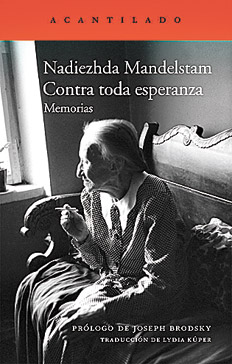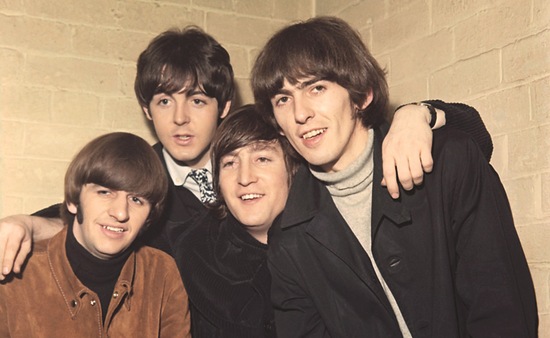From the August, 1942 WQXR Program Guide:
Editorial Note: Occasionally we receive letters from listeners who protest angrily against our broadcasting German music either orchestral or vocal. Because of the democratic implications of the problem, we have asked Ernest Angell, President of the Council for Democracy, to present his views, which he does in the following article. The Council for Democracy is dedicated to a fighting faith in democracy, and hence Mr. Angell’s comments represent the considered opinion of real fighters for our present way of life.
Most lovers of music in America have taken it for granted that no attempt will be made to ban the works of “enemy” composers during this war. As a result of this general attitude, the music of German and Italian composers is heard over the radio and in concert halls at least as frequently as it was heard before Pearl Harbor, and, to all appearances, the morale of the American people remains unweakened.
Yet, while the majority of the people who listen to symphonic and operatic music have assumed that the mistakes of the last war will not be repeated, there are a small number of people who are attempting to bring pressure, especially on radio stations, to stop the playing of so-called “enemy” music. This group is quite articulate, and, even though it has offered no definition of what it means by “enemy” music, it pursues its objective relentlessly.
It would, of course, be a simple matter to ignore this minority. In the final analysis only a very few people have to contend with this particular form of anti-intellectualism. Most of us are not connected with radio stations and concert halls. Unfortunately, we have learned–and learned painfully –that when a minority holds a point of view with sufficient fervor, the majority can expect trouble. Under the circumstances, it would be foolish to ignore those who would catalog certain music as “enemy” music and ban it either from the air or from the concert hall.
The very mention of “enemy” music ought to put all music lovers on their guard. Deems Taylor, the noted composer and critic, has consistently pointed out that, leaving aside such things as the Horst Wessel song, it is quite impossible to define “enemy” music. In a recent WQXR program booklet, Mr Taylor recalled that during the last war hyper-sensitive people, who considered themselves the true guardians of the traditions of patriotism, led the American people in a frenzy of music-banning which began with an attack on the operas of Wagner, and which was climaxed by attempts to prevent the appearances of Fritz Kreisler on the concert platform. As Mr. Taylor pointed out, when the war was over we came to regret our foolishness, and Mr. Kreisler resumed his place in the esteem and affections of American music lovers.
But, no amount of regret, or shame for that matter, can undo the damage that is done when we arbitrarily proscribe the works of certain composers. Before we can even begin to decide which composers will be barred from the radio and concert halls we must work ourselves into a state of mind which precludes the possibility of exercising intelligence. When we have done this we have brought ourselves well along the road to Fascism.
Let us assume, for instance, that we decide to ban the works of Wagner. With a great show of logic we can argue that Wagner is Hitler’s favorite composer. We can also argue that Wagner promoted the idea of a super-race and, to top it all off, we might add that in his old age Wagner was an undemocratic pessimist.
Now, there is some truth in all this. Yet, unless we are mentally and emotionally blind, we must realize that Wagner cannot be held responsible for the fact that Hitler likes Wagner’s music. And, if we have any real knowledge of Wagner’s operas, we must also realize that Wagner demonstrated that the idea of a super-race was untenable. In Die Götterdämmerung, the final opera of the cycle in which the idea of a race of gods is advanced, the gods go down to defeat and only man–plain ordinary man–is left to carry on the struggle.
Finally, if we are going to make a point of Wagner’s pessimism, let us not forget that the political ideas Wagner held for most of his life would have earned him a place in a concentration camp in present-day Germany. Hitler would remember that Wagner was forced to flee Saxony because of his activities during the revolution of 1848.
If we find it impossible logically to ban Wagner because we cannot stomach some of the ideas we think he has expressed in the Ring operas, we might ban his music because it is German music. Then we must out of necessity ban the music of Beethoven which can also be said to be German music. When we have done this, we will have deprived people of the opportunity of hearing the work of one of the most profoundly democratic men who ever lived. We will have closed our minds to the fact that Beethoven destroyed the dedicatory note to Napoleon which he placed on the title page of his majestic Third Symphony when Napoleon proclaimed himself Emperor. We will also make it impossible to listen to Beethoven’s musical description of Egmont, who fought so heroically to free the Netherlands from a foreign tyranny. In short, we will have deprived ourselves of absorbing through music a real appreciation of what is meant by the brotherhood of man.
have deprived ourselves of absorbing through music a real appreciation of what is meant by the brotherhood of man.
It is possible to go on for pages illustrating the complete futility of attempting to define “enemy” music. However, all this would be beside the point. Logic and reason may all be on our side but the fact remains that unless each and every music-lover in the United States understands the necessity for defending “enemy” music as one form of true culture which is timeless and inherently non-national, the minority may eventually have its way. First Wagner will go, then Beethoven, then Schumann and so on. Finally, we will in all probability wind up banning the works of Palestrina because he was an Italian.
Richard Wagner (Wikimedia)
Editor’s Note: The Council for Democracy was a lobbying and public relations group set up to counter the isolationist America First organization. For more on their origins and activities please see: Council for Democracy.





 Contra toda esperanza. Memorias. Nadiezhda Mandelstam El acantilado 643 páginas
Contra toda esperanza. Memorias. Nadiezhda Mandelstam El acantilado 643 páginas

 Ayuntamiento de Peñaranda de Bracamonte
Ayuntamiento de Peñaranda de Bracamonte







































 have deprived ourselves of absorbing through music a real appreciation of what is meant by the brotherhood of man.
have deprived ourselves of absorbing through music a real appreciation of what is meant by the brotherhood of man.











